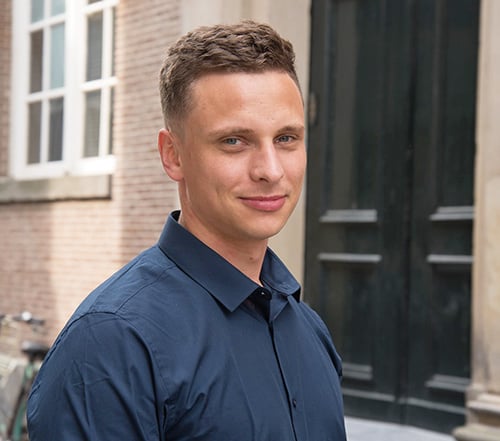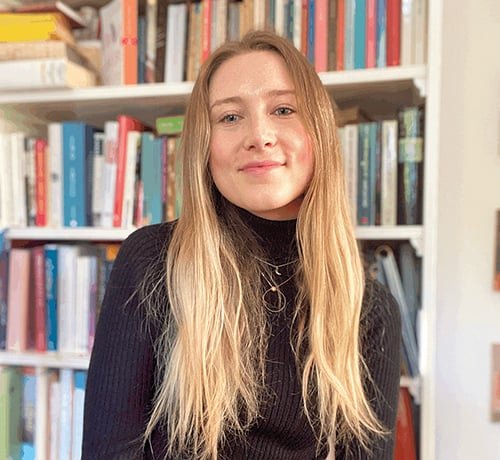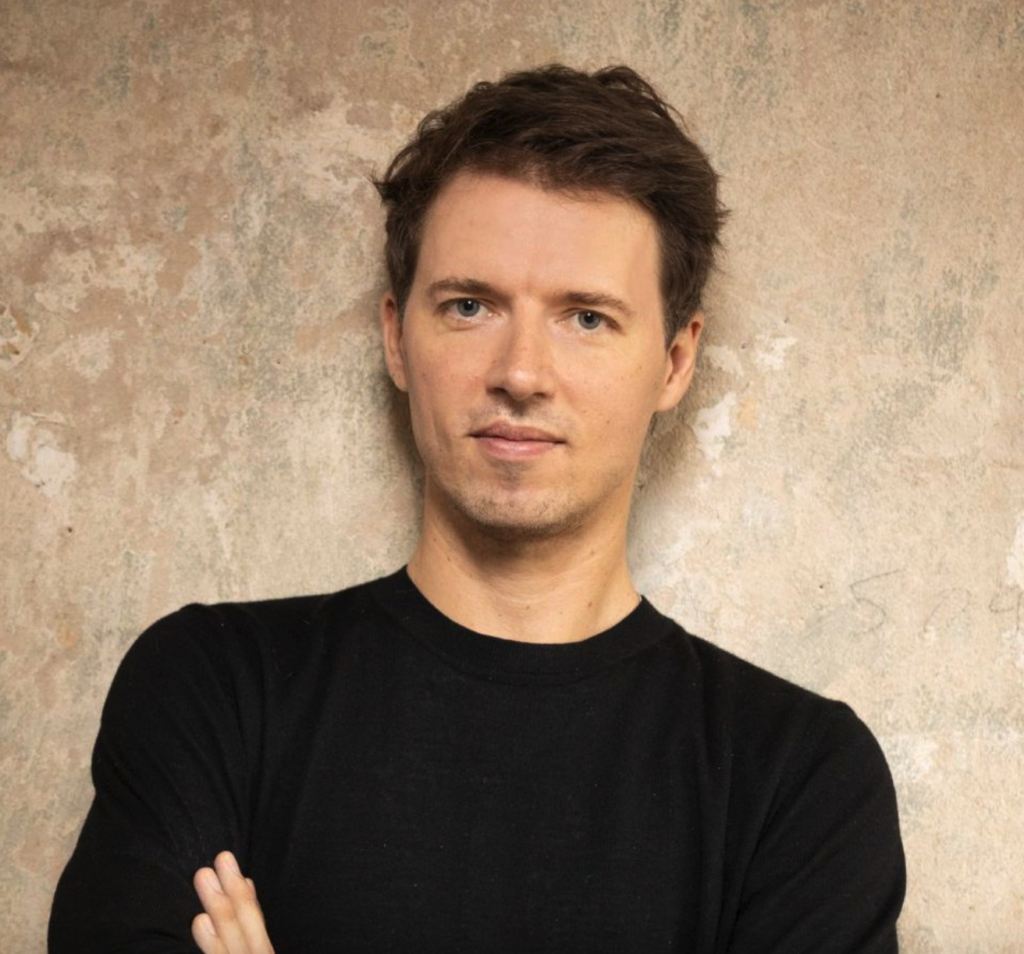
Antisemitism is the oldest form of hate. The recent violence that broke out in Amsterdam after a game between Maccabi Tel Aviv and home team Ajax, where Israeli and Jewish soccer fans were violently attacked, brought back echoes of Kristallnacht, underscoring the rising tide of antisemitism in Europe and around the world.
On November 14, the Combat Antisemitism Movement (CAM) held an online briefing, “Europe at a Crossroads,” with speakers discussing the surge in antisemitism. CAM is a 21st-century advocacy leader whose vision is to “forge an unbreakable shield that safeguards Jewish communities and all those impacted by hatred, ensuring that antisemitism, in any form, is eradicated from our society.”
Valuable insights into the current challenges that Jewish communities in Europe are experiencing were shared. Experts addressed the current wave of violence and hate targeting these communities, with specific focus centered on the role of social media and anti-Zionism as catalysts.
Oriana Marie Krüger, director of European Affairs, CAM, led the briefing. “It is very important to notice that this violence is coming after a year of Jewish leaders warning us, monitoring institutions warning us, and even the brutal attack on Israel by the terrorist organization Hamas sparking a rise of antisemitism in Europe. Europe was never free of antisemitism before. So after current trends, it’s more important than ever to take action, and we need a very clear recognition of modern forms of antisemitism,” she said.

Krüger told The Jewish Link: “The rise in antisemitism across Europe isn’t happening in isolation—it’s rooted in traditional cultural biases that are being amplified in today’s world. Unregulated digital platforms play a significant role, as their algorithms often promote hateful content, turning online hostility into real-world violence. The key takeaway is this: We need to act together—governments must enforce stronger protections, social media companies must take responsibility for the content their platforms amplify, and communities must work to challenge antisemitism wherever it appears.”
Historian Dr. Hans Wallage was the first featured speaker. Wallage serves as a researcher on antisemitism at the Dutch Center of Information and Documentation Israel (CIDI). He addressed antisemitism in the Netherlands.
“The last year here in the Jewish community, we don’t know what we can do to stop it because every time we try, we see another event happening. Right now in high schools and elementary and universities, all the students with a Jewish background experience some form of antisemitism,” he said.
Wallage cited three reasons for the current increase in antisemitism. “First we see in the online world that there are websites and platforms where they are spreading antisemitism, conspiracy theories about Jews and Zionists and we see young children showing images of the war in Gaza. There’s research that shows that all those platforms have such an influence on our children.
“The second problem is the media that is giving one narrow story of what’s happening in Israel and Gaza and it’s a sort of propaganda by repeating and repeating what’s happening. And you see that people are going to believe the narrative, and cannot distinguish anymore about politics in Israel and the Jewish community over here.”
The third reason: “Antisemitism is not coming anymore from only the right extremist. We see it’s in every corner now: left extreme, the Arab world, the migrants. So it’s difficult that we try to combat it on one side and we get the other side also.”
Wallage admitted to feeling pessimistic about what is really working to combat antisemitism, a feeling that he says is shared by those in the Jewish community of the Netherlands. He shared that the Jewish community is only 0.25% of the Dutch population, yet antisemitism makes up 39% of its discrimination.
However, he also said that tackling the online world is on the agenda to battle the fake news reaching our children. “The prime minister is going to delete some accounts that are really sharing fake news and also antisemitic voices. So that’s a good start,” he said. “The Ministry is talking about making antisemitism a felony, more severe, so that if it is discrimination and it is antisemitism, there will be a huge punishment, hopefully in the near future.
“Antisemitism in the Netherlands is a complex and pervasive issue, surfacing from multiple sectors of society. This calls for a robust and comprehensive strategy to tackle it effectively wherever it appears. Politicians have been making promises for over a year, but now, more than ever, it’s time for tangible actions. The situation facing the Jewish community in the Netherlands is dire, and immediate action is crucial—there is simply no time to lose,” Wallage told The Jewish Link.
Dr. Gil Yaron, head of the Office of the State of North Rhine-Westphalia in Tel Aviv, also spoke, addressing antisemitism in Northern Westphalia, Germany. He described a new study just published in September that showed the rise in antisemitism despite all measures taken by the state. The study showed that between 8% and 25% of people harbor antisemitic thoughts, feelings or worldview. Yaron said: “Antisemitism is not an opinion; you cannot even call it a prejudice. It’s an expression of a worldview that helps people put order into their world and explain very complex mechanisms, and part of what they use is to blame the Jews and to attribute powers and intentions to them that are completely unrealistic.”
The study found that almost a quarter of the people in North Westphalia said they believe that the Central Committee of Jews in Germany, the official organization that represents Jews in Germany, has too much influence on German politics. Almost half of the study respondents said they believe Jews have too much influence in the world in general. Almost 40% equated policies of the State of Israel and the policy of Nazi Germany. Almost 60% of Germans today believe that everything Holocaust-related, including reparations, is an industry that has been invented by very smart lawyers profiting from it, and 47% of Germans would like to see an end to the debate about the Holocaust.
Yaron said the Jews in North Westphalia are afraid to “out” themselves as Jews, are being attacked and alienated on campus and do not want anyone to know they are Jewish. He spoke of Jews taking mezuzahs off their doors, and some Jews telling him they would like to have a gun license for their own self-defense, as counting on police or authorities may not be a viable option.
“This hits home very hard because Germany felt for many, many years that it has been a prime example of taking the lessons from the Holocaust, implementing them and really reeducating her own population in terms of being tolerant and heeding the lessons of the Holocaust and the crime that was perpetrated against the Jews, Yaron said.
“So the government has instituted a very strong 10-point plan against antisemitism, which involves strengthening schools in their fight against antisemitism. … And part of what the government does is saying we need the connection to Israel. It will help decrease antisemitism through this personal contact to the demystification of what a Jew is and what Israel is, and they basically are doing it out of self-interest because they say the more we fight antisemitism, the more we protect our democracy.”
The last speaker was Dr. Matthias J. Becker, postdoctoral researcher at the Center for Research on Antisemitism (ZfA) at the Technical University in Berlin. His work puts particular focus on researching prejudice and hate within the political mainstream. Since 2020, he has been leading the interdisciplinary research project “Decoding Antisemitism.”

Dr. Matthias J. Becker, postdoctoral researcher at the Center for Research on Antisemitism (ZfA) at the Technical University in Berlin
Becker emphasized the importance of effectively addressing antisemitism through the study of the web: “The role of social media in generating and amplifying antisemitism must not be underestimated. We need to develop effective strategies to counter this issue—and it is crucial to consider the phenomena, trends and dynamics observable on social media platforms. I am convinced that social media studies play a pivotal role in understanding and ultimately combating modern forms of Jew hatred and the way it occurs today.”
Becker told The Jewish Link: “When analyzing the role of social media in the rise of antisemitism, it is crucial to consider not only the well-known factors—such as algorithms that amplify hate speech and orchestrated campaigns by malicious actors, including anti-Western states and radicalized groups—but also the distinct communication conditions of social media. These dynamics include anonymity, mutual reinforcement among users, and the numerous bottom-up processes that broaden the reach, emotional intensity and diversity of hate speech. Together, these elements create an environment of constant exposure to harmful rhetoric. As a result, antisemitism emerges in unprecedented ways, characterized by its scale, intensity and communicative diversity.
“In my ‘Decoding Antisemitism’ project, we analyze the emerging communication patterns of antisemitism,” Becker continued. “So far, the collective understanding of this phenomenon has been quite limited. However, gaining insights into how antisemitic communication functions online is essential to countering the normalization of antisemitic thought in society. Addressing this challenge requires close collaboration between academia, politics, platforms and educational institutions. Unfortunately, efforts in this area have remained alarmingly limited to date.”
Susan R. Eisenstein is a longtime Jewish educator, passionate about creating special, innovative activities for her students. She is also passionate about writing about Jewish topics and about Israel. She has two master’s degrees and a doctorate in education from Columbia University.








